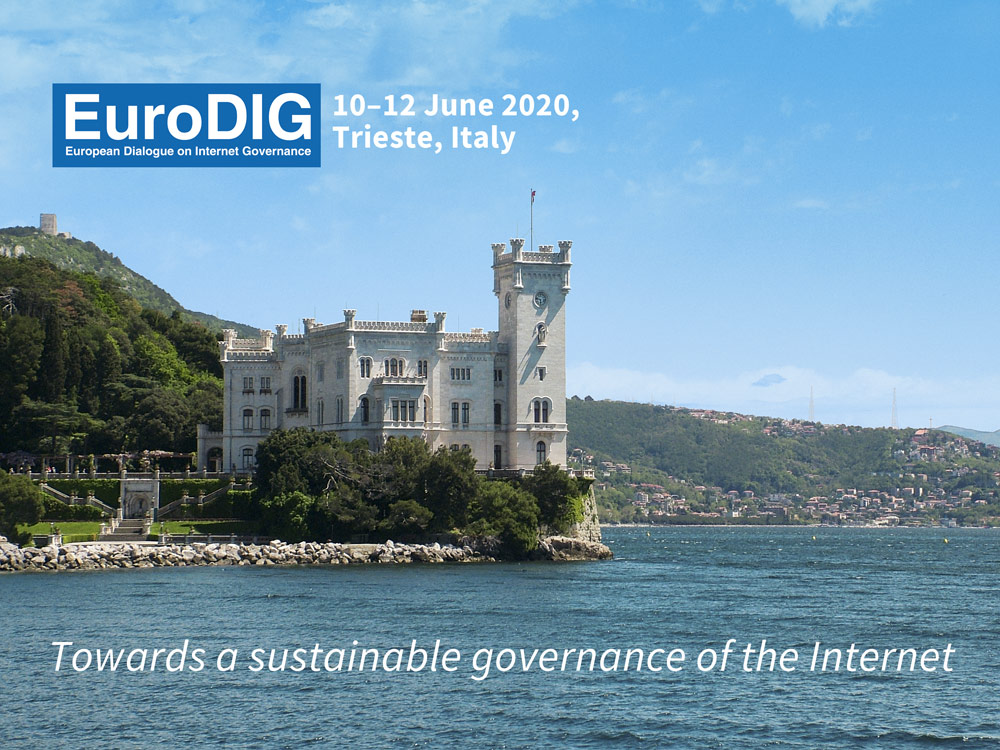Social media: Opportunities, rights and responsibilities
11 Jun 2020 14:30h - 16:00h
Event report
Moderated by Ms Sabrina Vorbau (Project Manager, European Schoolnet) and Mr Abhilash Nair (Senior Lecturer, Internet Law, Aston Law School), the session titled ‘Social media – opportunities, rights and responsibilities’ aimed to address the acute issue of misinformation and the role of different stakeholders in addressing the spread of rumours and fake news on social media platforms.
Ms Tania Pavleska (Researcher, Laboratory for Open Systems and Networks, Jozef Stefan Institute) opened the debate by reflecting on the study she is part of, and by sharing some insights. One of the most important findings she has come across is the lack of multistakeholder involvement, i.e., the involvement of those directly concerned by the issue of misinformation. She also stressed that the majority of initiatives are only acting at the national level and are not being co-ordinated among each other. Since these efforts are rather isolated attempts to address the problem of misinformation, the outcome is not as efficient and effective as it should be.
Other speakers also addressed the need for a multistakeholder involvement and a uniform approach to the spread of misinformation. To that end, Mr Paolo Cesarini (Head, Media Convergence & Social Media Unit, Directorate-General for Communications Networks, Content and Technology (DG CONNECT), European Commission (EC)) added that the dialogue between all stakeholders will remain essential in the future, irrespective of the regulatory choices that will be made in the following months. Similarly, Ms Liz Corbin (Deputy Media Director and Head of News, European Broadcasting Union (EBU)) emphasised the need for more collaboration, adding that the virus does not know borders, nor does fake news.
Corbin also touched on the work of fact checkers, citing the recent Communication by the EC on tackling fake news and disinformation during COVID-19 that notes there needs to be more transparency and accountability from the platforms. While commending the work of Facebook and other platforms in bringing down the biggest myths and fake news, she added that this is only effective if fact checkers can really reach the people that saw the fake news in the first place.
With regard to the role of governments and other stakeholders in combating misinformation, Corbin pointed out that there is a need for more reliable funding of public service journalism on one hand, and the protection of the freedom of the press by national authorities, on the other. Mr Nertil Bërdufi (Assistant Professor, University College Beder; Founder and Director, Beder Legal Clinic) illustrated, through the case of Albania, how a government’s attempt to halt the spread of misinformation may lead to restrictions on the freedom of expression and the freedom of the press. At a broader level, the EU should, according to Cesarini, support professional media, watch out for governmental actions that restrict the freedom of expression, and have a more serious structure in place to organise fact checking and research activities so that all EU countries can benefit from the same type of approach.
Finally, the speakers also addressed the importance of media literacy. To that end, Mr Guido Bülow (Head, News Partnerships, Facebook) reminded the audience of the threefold approach of Facebook to misinformation. In addition to removing content that violates community standards from their platform, and to reducing the distribution of the content that offends the authenticity of the platform, media literacy plays a significant role in Facebook’s approach to fighting misinformation, but is oftentimes underrated.
According to Bülow, media literacy is crucial in fighting misinformation. It is very important to educate and empower people to spot misinformation and decide for themselves on the content of the product.
Related topics
Related event

